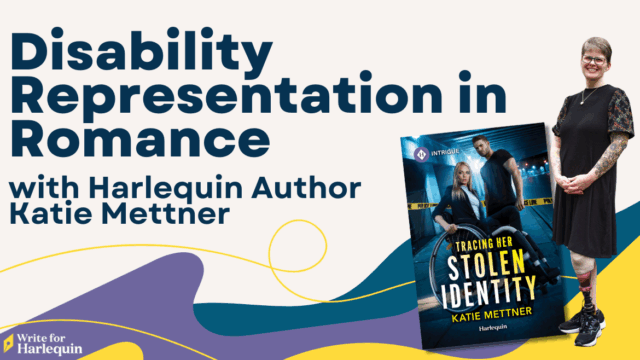

Dear Editor
How can you deal with traumatic life scenarios realistically in a romance? I have a storyline in mind which is close to my heart – it’s something I’ve experienced personally – but I’m concerned it won’t be appropriate.
Many thanks,
Diane
Dear Diane,
We love authors who wish to challenge themselves and who are brave enough to bring their own personal experiences to their writing. But it’s normal to have these concerns when you are thinking of tackling something which is also going to be a challenge for your characters to overcome.
Let me start off by saying timing is everything. Let’s say we’re talking about the highly emotive issue of losing a child – one of the worst things that can happen to anyone. It’s an incredibly strong reason for a character to avoid getting close to anyone again, but what’s the best way to approach it in a romance? When the end goal has to be delivering a satisfying, believable Happily-Ever-After?
Firstly, you don’t want to spend the first three chapters setting the scene, going over and over the past, detailing the events. One of the problems with this is that the tone and expectations you are setting for your reader will be more downbeat – you don’t want to miss an opportunity to demonstrate that this book is about hope, love and second chances.
By relaying too much information too quickly you will be giving your characters huge mountains to climb before the book has even started. You don’t want your readers to be emotionally exhausted before the romantic climax!! On the flip side, you also don’t want to hang onto this kind of information, just to have it spill out onto the page right at the very end as a justification for why your hero and heroine are hitting their black moment. You will run the risk of missing out on an opportunity to explore this thread, and you’ll be giving yourself a lot of work to build it into the happy ever after – which may not feel satisfactory. So if you want to explore a traumatic event in a character’s past (and we encourage you to feel that you can!) then be tactical about how you use it – think about weaving it through your story, but not letting it dominate and keeping it in the backstory where possible. After all, if the subject is extremely traumatic and we see it play out in the middle of the front story, then readers might not believe you can write a convincing happy ending in the time you have left.
Diane, drawing on your own experiences helps add genuine life, authenticity and passion to a story. But when you are using emotive issues which are close to your heart, try not to get buried underneath them. Instead, let your experiences help you create relatable characters with a strong conflict to carry through the story. It’s important to remember there may be a reader out there who has had similar experiences to you and your characters. Think about creating access points for your reader to relate to. They may be subtle details like a heroine who actively walks the long way around the hospital to avoid the maternity ward, finding the cries of a new born baby too painful to bear. But however you choose to demonstrate the trauma you have given your character, let their manifestations feel real. Sometimes underplaying them and the unspoken truth can be just as – if not more – powerful than having the info spilled out onto the page.
Lastly, if you are asking for feedback on your story, especially one which is close to your heart, then remember any feedback will never be personal. As editors, we look at the overall story and everything in between to create an entertaining, satisfying and emotional read. The best advice I can give, and this goes for everything you write, is be brave, and don’t fear feedback. If you’ve made the initial step to ask our opinion then you want to write the best book possible. Have a little perspective, especially if we comment on something you feel personally attached to. Because all we want is to help you use what you have to its absolute potential.
If you are worried about a theme not being appropriate in a romance, ask yourself whether you can find a way to give your characters a genuine and earth-shattering happy ending. If you feel that you can, then bite the bullet, write it and seek the advice from an editor. That’s what we’re here to do!
Good luck!
Megan & the Harlequin Editors




